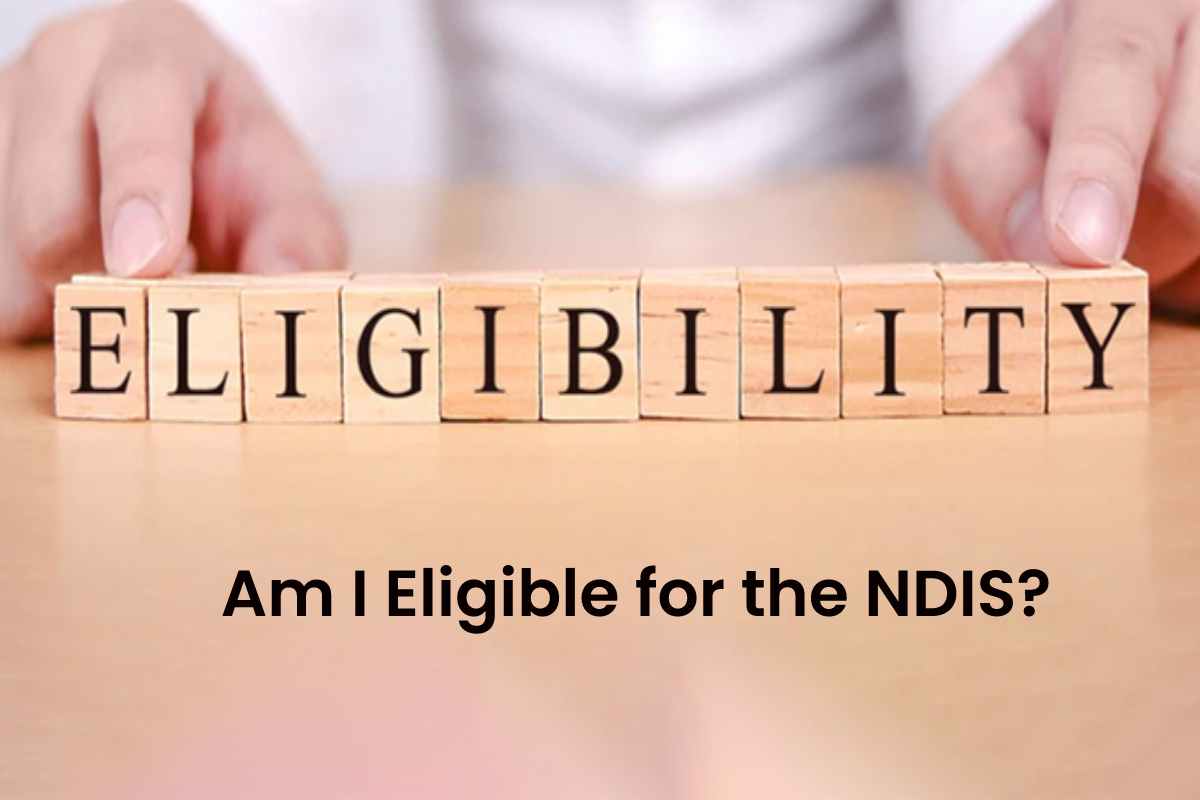
Am I Eligible for the NDIS
Australia’s National Disability Insurance Scheme (NDIS) offers funding to millions of people living with disability. If you’re eligible for the NDIS, you’ll be able to use your funding to access services and supports from NDIS registered providers that help you manage everyday life and achieve your goals. While the NDIS has been designed to be simple and accessible, the application process can sometimes be confusing. Because everyone is assessed on a case-by-case basis, you may be left wondering whether you’re eligible for the scheme. To help out, we’re going to discuss the NDIS’ eligibility criteria in more detail to find out whether you qualify for funding.
NDIS Eligibility Criteria
The NDIS is a major government program that’s designed to help as many people as possible. If you suffer from a disability that requires regular support for daily activities such as cooking, cleaning, transport or personal care, you may be eligible for the NDIS. To ensure the program is accessible, the NDIS only has a few basic eligibility criteria. To qualify for funding you must:
- Be aged between 7 and 65
- Be an Australian citizen or permanent resident, or;
- Hold a Protected Special Category Visa
- Live in Australia
On top of this, you also need to live with a disability caused by a permanent impairment. If your disability requires regular support to complete daily tasks such as cooking and personal grooming, you may be eligible for the NDIS. If you don’t meet these requirements then you may be eligible for early intervention funding. Early intervention funding is available to help you build your capacity and reduce your need for support in the future.
Anyone who’s younger than 7 or older than 65 can seek disability support through other programs such as My Aged Care or the Early Childhood Early Intervention scheme.
NDIS Eligible Disabilities
Other than age and residency requirements, the key eligibility criteria for the NDIS is your disability. The NDIS is intended to be as accessible as possible. To do that, the scheme doesn’t assess your diagnosis. Rather, it tests your needs and provides help to people living with disabilities that require regular support. If you have a permanent impairment that causes a significant disability then you can apply for the NDIS. Your disability can be caused by any of the following impairments:
- Physical
- Intellectual
- Neurological
- Cognitive
- Psychosocial
- Hearing
- Visual
Remember, the NDIS only tests your needs. That means you can be eligible for the NDIS whether or not you were born with your impairment. For example, while the NDIS can provide funding for people who struggle with autism or physical disabilities such as multiple sclerosis, it can also provide funding if you’re injured in an accident.
How to Apply for the NDIS
If you’re approved for the NDIS, you’ll have the chance to work with your assessor to design a plan that includes the funding and supports you need. Your NDIS funding can be used to access services from a broad range of NDIS registered providers, including support staff, transport assistance, specialty equipment and more.
The process of applying for the NDIS has been designed to be as simple as possible. There are two main ways to apply:
- Talk to your Local Area Coordinator (LAC). Local Area Coordinators are the bridge between NDIS services in the community and the people receiving NDIS funding. You can talk to your LAC if you’d like assistance with the NDIS application process. Applying through an LAC can be especially beneficial if you’re unsure which services and supports you may need. They’ll be able to help you develop your application and articulate your needs to obtain the right NDIS funding.
- Apply directly through the National Disability Insurance Agency (NDIA) website. You’re welcome to apply for the NDIS on your own. You’ll need to download and complete an Access Request Form from the NDIA website. Once you’ve filled out the form you can return it via email, in person or in the post. If you’re vision impaired or need help filling out the Access Request Form then you can phone the NDIA directly on 1800 800 110.
When you apply for the NDIS you need to remember that your assessor doesn’t know you personally. That means it’s up to you to explain your situation and ask for the supports you need. The more detail you can provide, the more likely you are to receive funding that benefits your life.



